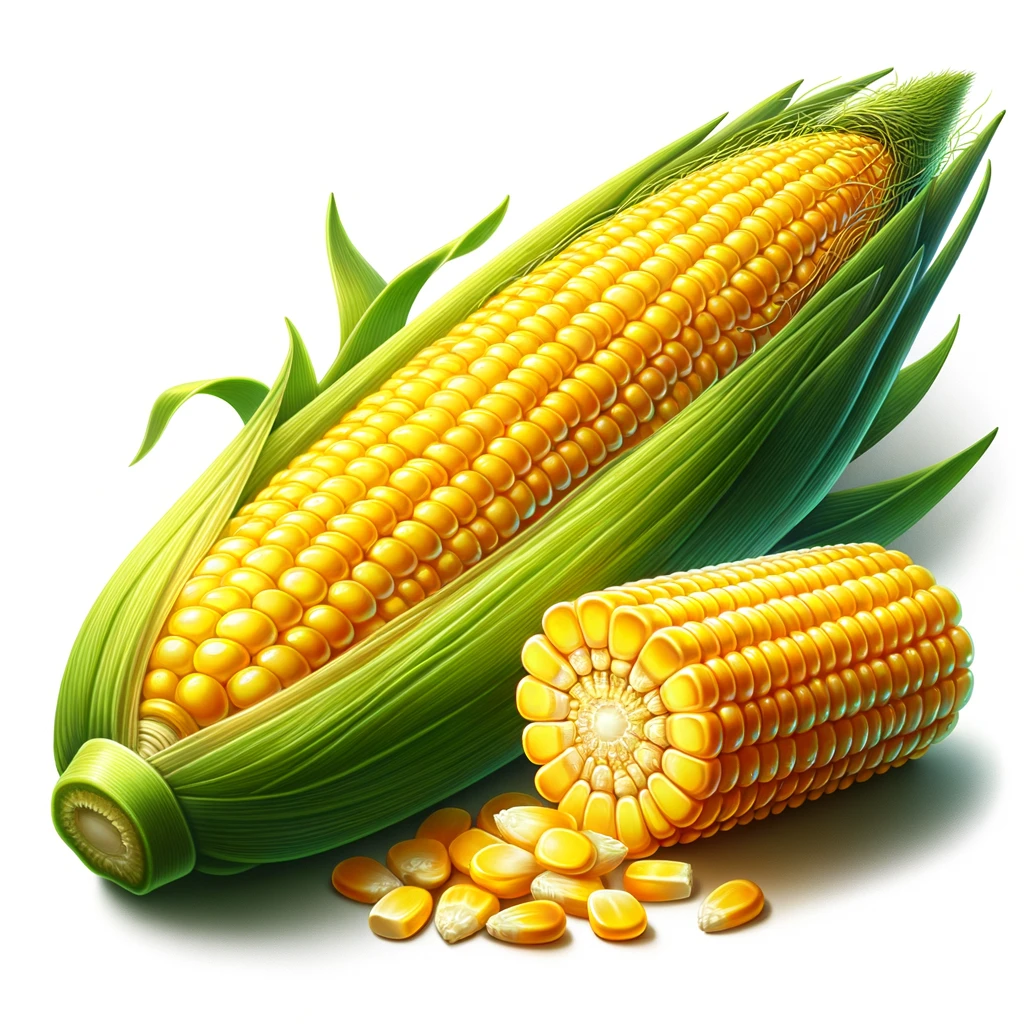When it comes to staple foods that have stood the test of time, corn (Zea mays) ranks high on the list. This humble grain, indigenous to the Americas and now a global dietary staple, offers a treasure trove of nutritional benefits that can significantly enhance your health and well-being.
Nutritional Content of Corn
Corn is not only delicious but also rich in essential nutrients vital for overall health. Here’s a breakdown of its nutritional profile:
- Macronutrients: Corn primarily consists of carbohydrates (about 19 grams per 100 grams), making it an excellent energy source. It also contains modest amounts of protein (about 3.4 grams per 100 grams) and is virtually fat-free, which makes it a heart-healthy choice.
- Vitamins: Corn is particularly rich in vitamins, notably:
- Vitamin B1 (Thiamine): Essential for energy metabolism and nerve function.
- Vitamin B5 (Pantothenic Acid): Supports hormone production and overall cellular function.
- Folate (Vitamin B9): Crucial for DNA synthesis and cell growth, especially important during pregnancy.
- Minerals: Corn provides important minerals such as:
- Magnesium: Supports muscle and nerve function, blood sugar control, and bone health.
- Phosphorus: Essential for bone health and energy production.
- Potassium: Important for heart health and maintaining fluid balance.
- Phytonutrients and Antioxidants: Corn contains various phytonutrients, including carotenoids like lutein and zeaxanthin, which are beneficial for eye health. These compounds also act as antioxidants, helping to neutralize harmful free radicals in the body and reduce oxidative stress.
Health Benefits of Corn
Incorporating corn into your diet can confer numerous health benefits:
- Heart Health: The fiber content in corn, along with its folate, potassium, and magnesium, supports cardiovascular health by helping to lower cholesterol levels, manage blood pressure, and reduce the risk of heart disease.
- Digestive Health: The fiber in corn promotes healthy digestion and can help prevent constipation. It also supports the growth of beneficial gut bacteria, contributing to overall gut health.
- Eye Health: Lutein and zeaxanthin, found abundantly in corn, are essential for maintaining good vision and reducing the risk of age-related macular degeneration.
- Weight Management: Corn is a relatively low-calorie and filling food due to its fiber content. It can help you feel full longer, aiding in weight management and reducing the risk of overeating.
- Blood Sugar Regulation: The fiber and complex carbohydrates in corn contribute to steady energy release and can help stabilize blood sugar levels, which is beneficial for individuals with diabetes or those at risk of developing it.
Scientific Insights and Practical Tips
Recent nutritional science continues to underscore the importance of whole grains like corn in a balanced diet. Whole grains are linked to lower risks of chronic diseases such as heart disease, diabetes, and certain cancers. Choosing whole grain corn products over refined grains ensures you get the maximum nutritional benefit, including higher fiber content and more antioxidants.
Incorporating corn into your meals can be both delicious and nutritious. Whether you enjoy it fresh off the cob, grilled, or incorporated into salads, soups, or even as a base for dishes like polenta or cornbread, there are countless ways to savor this versatile grain.
Conclusion
Corn is not just a simple grain; it’s a nutritional powerhouse that can contribute significantly to your overall health and well-being. From its rich array of vitamins, minerals, and antioxidants to its potential benefits for heart health, digestion, and more, corn deserves its place on your plate. Whether you’re aiming to improve your diet, manage your weight, or simply enjoy a wholesome meal, incorporating corn into your meals is a step towards a healthier lifestyle.
Next time you reach for a tasty and nutritious addition to your meal, consider the golden goodness of corn—it’s more than just a grain; it’s a key ingredient in your journey to better health.





